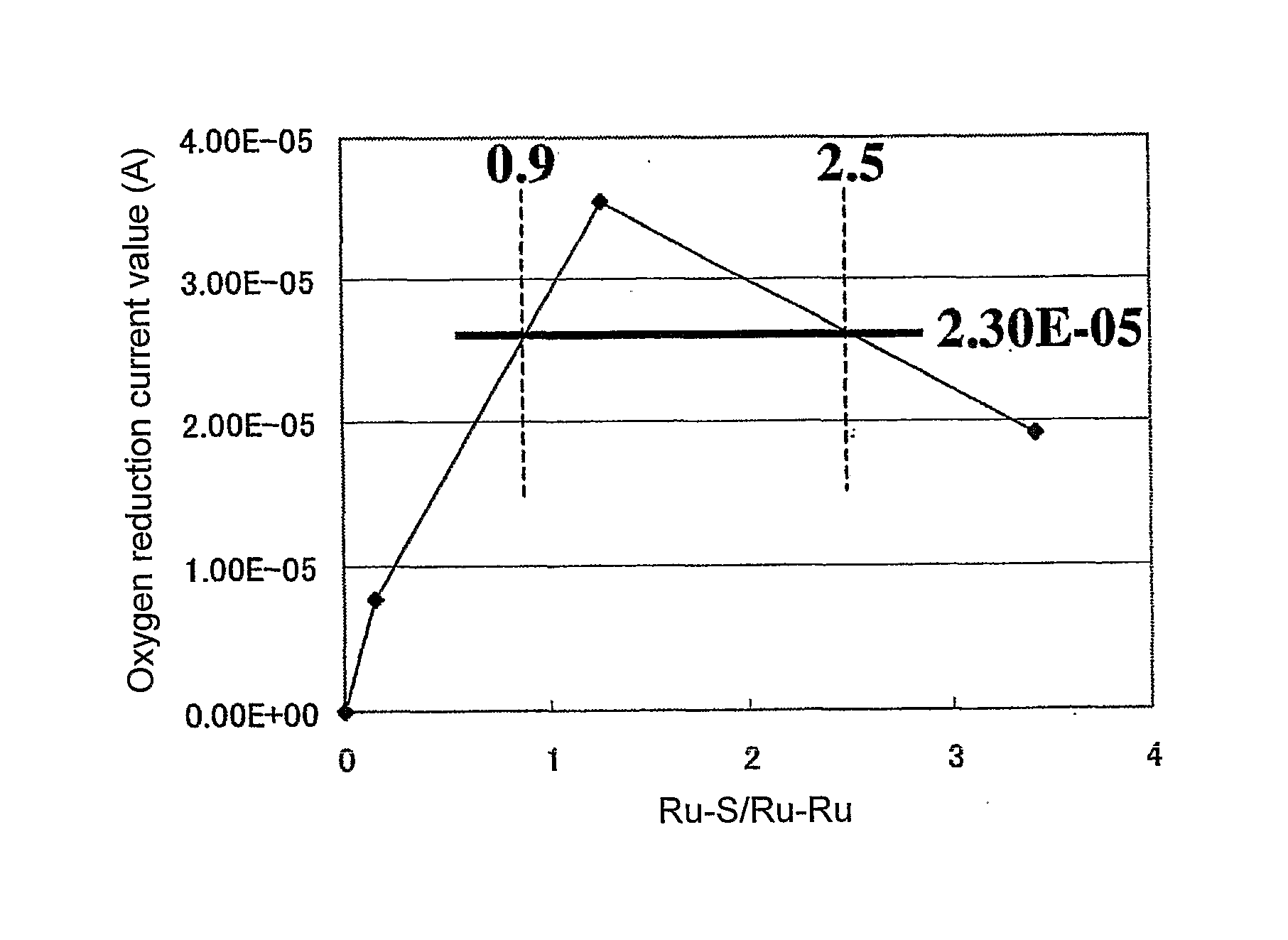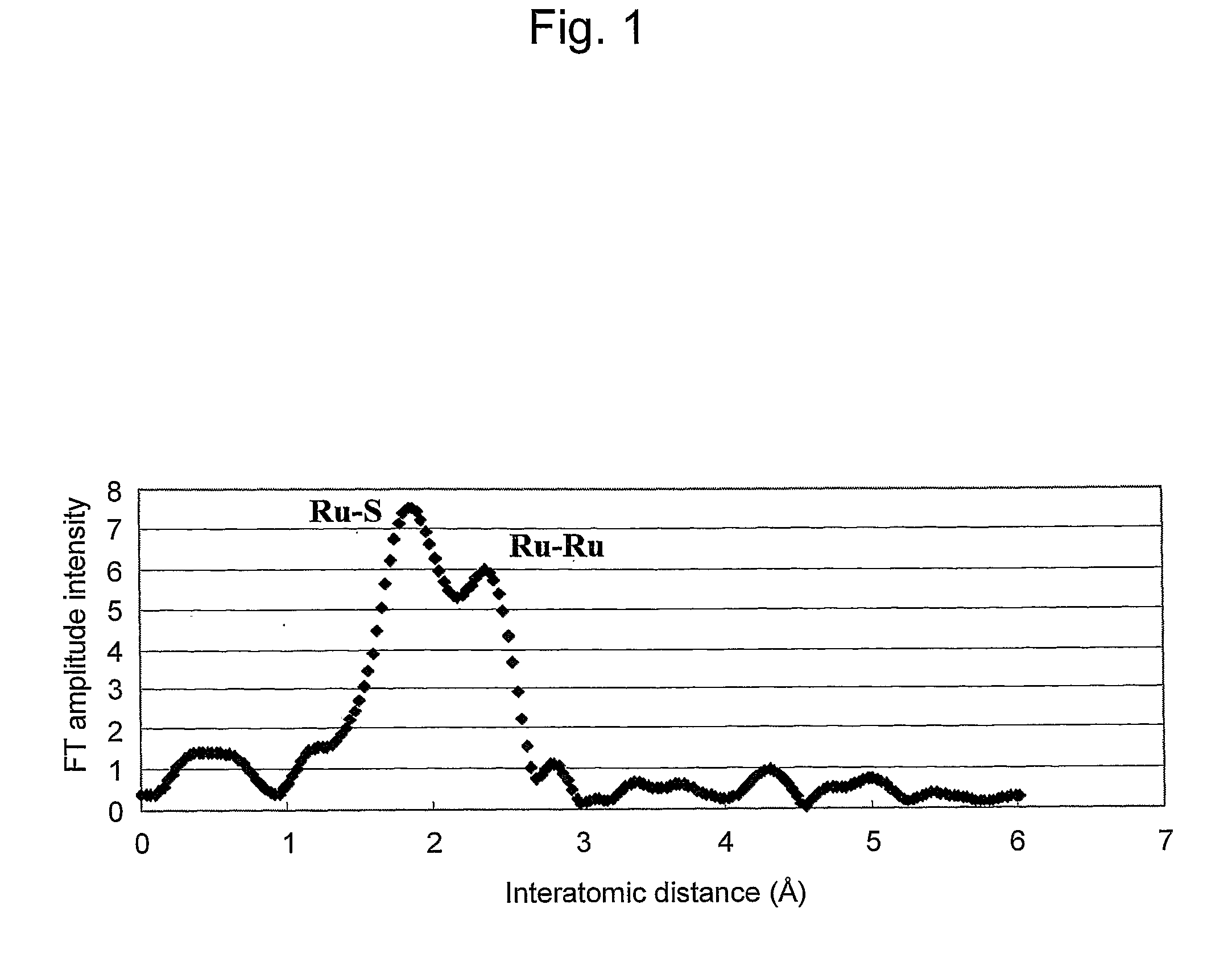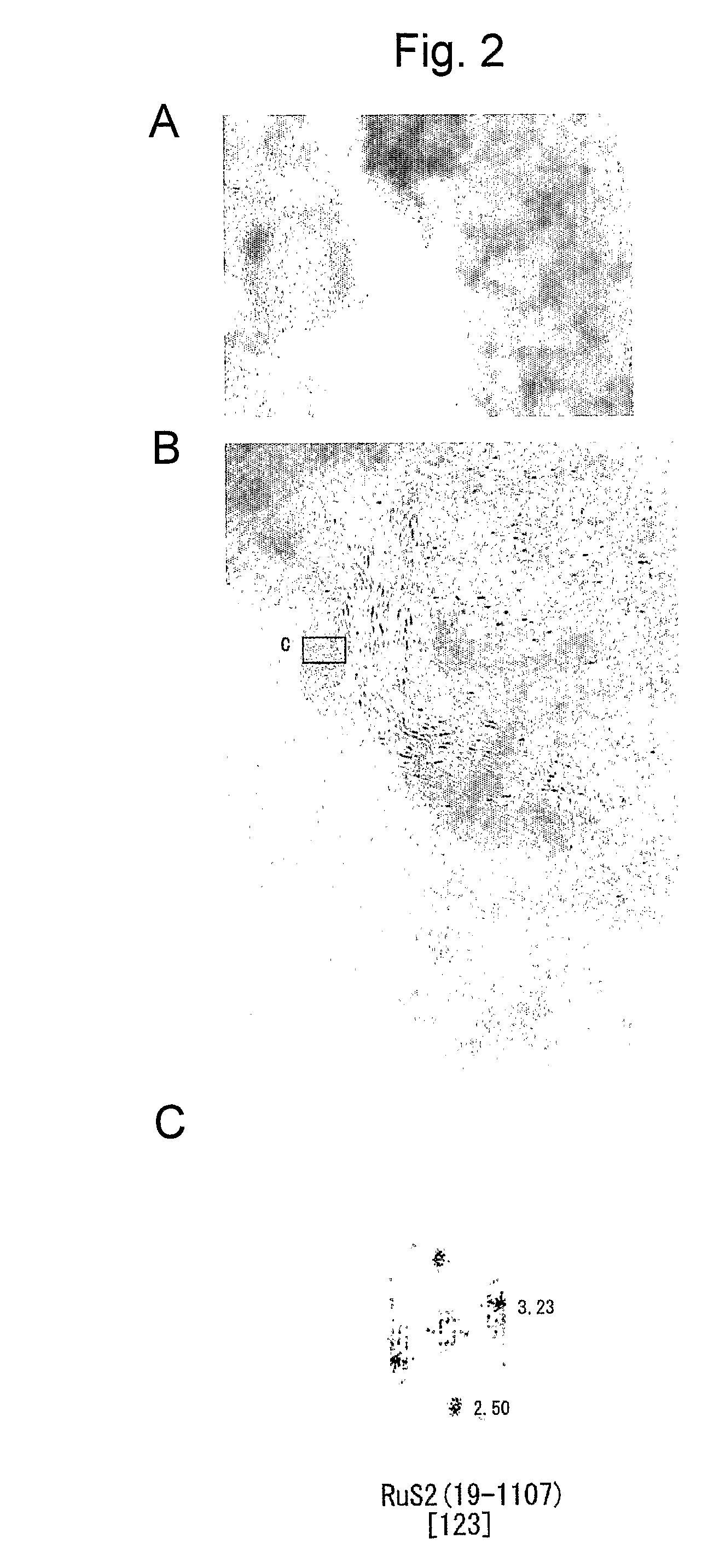Fuel cell electrode catalyst, method for evaluating performance of oxygen-reducing catalyst, and solid polymer fuel cell comprising the fuel cell electrode catalyst
a fuel cell electrode and catalyst technology, applied in the direction of cell components, electrochemical generators, physical/chemical process catalysts, etc., can solve the problems of mea deterioration, two-electron reduction, material cost, etc., and achieve the effect of higher level of four-electron reduction performance and higher activity
- Summary
- Abstract
- Description
- Claims
- Application Information
AI Technical Summary
Benefits of technology
Problems solved by technology
Method used
Image
Examples
Embodiment Construction
[0034]Hereinafter, the present invention is described in more detail with reference to the Examples and the Comparative Examples.
[Catalyst Preparation]
[0035]Ruthenium carbonyl, molybdenum carbonyl, and sulfur were heated at 140° C. in the presence of argon, followed by cooling. Thereafter, the resultant was washed with acetone and filtered. The obtained filtrate containing RuMoS / C (Ru:Mo:S=5:1:5; 60 wt %) was baked at 350° C. for 2 hours. Thus, a catalyst was prepared.
[0036]The above catalyst material was subjected to structural analysis via EXAFS and TEM.
[0037]FIG. 1 shows structural analysis results for Ru-containing chalcogenide obtained via EXAFS (extend X-ray absorption fine structure). FIGS. 2A, 2B, 2C show TEM images (FIGS. 2A, 2B) of an Ru—S portion in Ru-containing chalcogenide obtained via TEM and an X-ray diffraction image (FIG. 2C) of the Ru—S portion. Likewise, FIGS. 3A, 3B, 3C show TEM images (FIGS. 3A, 3B) of an Ru—Ru portion of Ru-containing chal...
PUM
| Property | Measurement | Unit |
|---|---|---|
| molar ratio | aaaaa | aaaaa |
| four-electron reduction performance | aaaaa | aaaaa |
| oxygen reduction performance | aaaaa | aaaaa |
Abstract
Description
Claims
Application Information
 Login to View More
Login to View More - R&D
- Intellectual Property
- Life Sciences
- Materials
- Tech Scout
- Unparalleled Data Quality
- Higher Quality Content
- 60% Fewer Hallucinations
Browse by: Latest US Patents, China's latest patents, Technical Efficacy Thesaurus, Application Domain, Technology Topic, Popular Technical Reports.
© 2025 PatSnap. All rights reserved.Legal|Privacy policy|Modern Slavery Act Transparency Statement|Sitemap|About US| Contact US: help@patsnap.com



